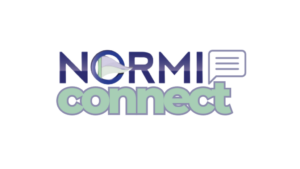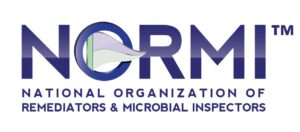2024 Recap: NORMI™ USA Coast to Coast
2024 Recap: USA Coast to Coast – Hurricanes, Floods, Droughts, and the Effects on the Mold Industry
As we reflect on the year 2024, the United States faced extreme weather events that left lasting impacts on communities, infrastructure, and industries across the country. From hurricanes battering the coasts to historic flooding, widespread droughts, and persistent heatwaves, the environmental conditions in 2024 posed challenges, particularly for industries like mold and microbial assessment and remediation. These extreme events not only affected lives but also reshaped the landscape for mold-related issues and the methods used to address them.
NORMI™: Meeting the Needs of the Mold Industry
In the face of these challenges, NORMI™ (National Organization of Remediators and Microbial Inspectors) played a pivotal role in the microbial assessment and remediation industry. Through its comprehensive training and certification programs, NORMI™ provided mold professionals with the skills and knowledge needed to meet growing demands in post-disaster environments.
NORMI™ certifications are recognized for their emphasis on proper microbial assessment and remediation protocols, ensuring that professionals are equipped to handle the complexities of microbial contamination resulting from hurricanes, floods, and other extreme weather events. Importantly, NORMI™ training meets state requirements for licensure in states where mold assessment and remediation are regulated, solidifying its reputation as a leader in industry compliance and expertise.
Specialized Training for Sensitized Individuals
NORMI™ also recognizes the unique challenges faced by sensitized individuals – those with heightened mold sensitivities or compromised immune systems. Through specialized remediation training, NORMI™ professionals are equipped to address mold concerns in environments where the health of occupants is a top priority. This advanced training focuses on ensuring cleaner, breathable air, effective microbial removal, and tailored solutions for those with severe mold sensitivities, making homes and businesses safer for all occupants.
Health departments in several states recommend utilizing NORMI™-trained mold remediators and assessors due to their adherence to best practices and industry standards. NORMI™’s reputation even received a high-profile endorsement from Dr. Oz, who referred to the organization as the "Good Guys" on his TV show, further reinforcing its credibility and consumer trust.
Hurricanes and Their Far-Reaching Impact
The year 2024 saw a surge in hurricane activity, with multiple powerful storms making landfall across the Gulf Coast, Southeast, and Atlantic regions. Hurricanes like Hurricane Laura and Hurricane Matthew left a trail of destruction, bringing strong winds, heavy rainfall, and widespread flooding. In addition to the immediate devastation, these hurricanes created the perfect breeding ground for mold infestations. As homes and businesses remained flooded for days or even weeks, the high humidity, water accumulation, and lack of proper ventilation led to rapid microbial growth.
Mold thrives in wet, dark environments, and in 2024, the aftermath of hurricanes saw an uptick in calls to mold remediation professionals. Floodwater-driven mold growth meant that many households and businesses in affected areas experienced long-term health risks, from respiratory issues to allergic reactions, while also grappling with the costly task of mold remediation. This created a heightened demand for NORMI™-trained professionals who could conduct proactive mold/microbial assessments and provide effective remediation strategies.
The Growing Problem of Flooding
Flooding in 2024 wasn’t confined to hurricane-prone regions alone. Increased rainfall across the country, particularly in the Midwest, led to severe flooding along major rivers like the Mississippi and Missouri. This persistent flooding affected both urban and rural areas, with large swathes of land submerged for prolonged periods. Once the waters receded, the consequences of this prolonged moisture were devastating for homes and commercial properties.
Floodwaters, which often bring debris, sewage, and contaminants, created hazardous conditions for mold growth. Properties required thorough mold assessments, with specialized remediation teams, including NORMI™-certified professionals, having to deal with materials like insulation and drywall contaminated by floodwaters. The demand for highly skilled professionals who understood flood-driven microbial contamination highlighted the importance of NORMI™’s robust training programs.
Droughts and Heatwaves: Unseen Mold Risks
While the devastating effects of hurricanes and floods grabbed headlines, 2024 was also marked by extreme droughts and heatwaves, especially in the western United States. Areas like California, Nevada, and Arizona experienced severe droughts, with water scarcity becoming a pressing issue.
Buildings in drought-affected regions experienced unique mold risks. Water damage from broken pipes or faulty HVAC systems, combined with extreme temperatures, led to condensation issues in poorly ventilated areas. This hidden moisture triggered mold development in unseen spaces, requiring advanced mold assessment methods and remediation techniques provided by NORMI™-trained professionals.
Additionally, wildfires exacerbated the problem. Smoke particles and pollutants interacted with indoor humidity levels, creating conditions conducive to mold growth in properties exposed to fire damage. NORMI™-trained professionals addressed these emerging challenges by implementing strategies for indoor air quality improvement and mold prevention.
The Mold Industry: Response and Remediation Strategies in 2024
The growing frequency and intensity of these climate-driven events made mold assessment and remediation an essential service throughout the year. The mold industry in 2024 faced several key challenges but also opportunities, as the demand for professional remediation services soared. NORMI™ played a critical role in meeting these challenges:
- Expanded Use of Technology: NORMI™ training emphasized the use of advanced tools like infrared cameras, moisture meters, and air quality testing equipment, allowing professionals to pinpoint microbial concerns accurately.
- Environmental Sustainability: NORMI™-certified remediators adopted eco-friendly solutions and green remediation practices, aligning with broader trends in sustainability and climate resilience.
- Post-Storm Services: The aftermath of storms and floods created a surge in demand for mold inspection and remediation services. NORMI™’s certified professionals were uniquely prepared to respond quickly and effectively. This also included efforts from the NORMIPro™ Environmental TASC Force. (The ETF is a Not-for-profit 501 (c) (3) public Charity).
- Health-Focused Remediation: NORMI™ emphasized health-first strategies, ensuring safer environments for all, especially sensitized individuals. Their specialized training addressed the increasing health risks associated with mold exposure.
Conclusion
Looking back at 2024, it’s clear that extreme weather events – from hurricanes to floods to droughts – reshaped the mold assessment and remediation industries. These events highlighted the importance of having skilled, certified professionals to address mold growth and contamination challenges. NORMI™’s training and certifications provided the expertise necessary to meet these growing demands, ensuring that homes and businesses remained safer, cleaner, and healthier.
As climate change continues to influence the frequency and severity of these events, the mold industry will rely even more heavily on organizations like NORMI™ to provide innovative, health-focused, and sustainable solutions in the face of future environmental challenges.


